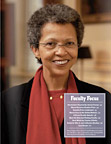Hornets’ Nest: Foreign Law and the U.S. Constitution
Printer Friendly VersionIn “Treating Like Cases Alike in the World: The Use of Foreign Law in Constitutional Cases,” his inaugural lecture as University Professor, Jeremy Waldron explored the fiery debate in America over consistency—whether there should be “harmonization and standardization of the way human rights are administered in the world, [and if] American constitutional law is part of that enterprise.”
In deciding a 2004 flag-burning case, Hopkinson v. Police, New Zealand Justice Ellen France referenced the U.S. Supreme Court’s decision in Texas v. Johnson, in which a law forbidding the desecration of the American flag was deemed unconstitutional since it prohibits freedom of speech. France ruled that Paul Hopkinson’s right to free speech was being unjustifiably limited and overturned his flag-burning conviction. Her decision met with no resistance from that country’s citizens or its judiciary.
Reactions were the opposite in the United States when Justice Anthony Kennedy delivered his swing-vote in Roper v. Simmons, a 2005 case that held it is unconstitutional to impose capital punishment for crimes committed while under the age of 18. Kennedy received death threats; he also was harshly criticized by some justices for citing foreign law in his opinion.
Waldron said that Americans must understand that the Bill of Rights “recognizes many of the core rights that both the international documents and the other foreign charters recognize.” He added that these rights—free speech, religious freedom—help shape global human rights law.
“They weren’t called ‘human rights’ when we embodied them in our constitution,” Waldron said. “We were pioneers in this common enterprise, and it is odd now that we should have such difficulty in acknowledging this.”
—

